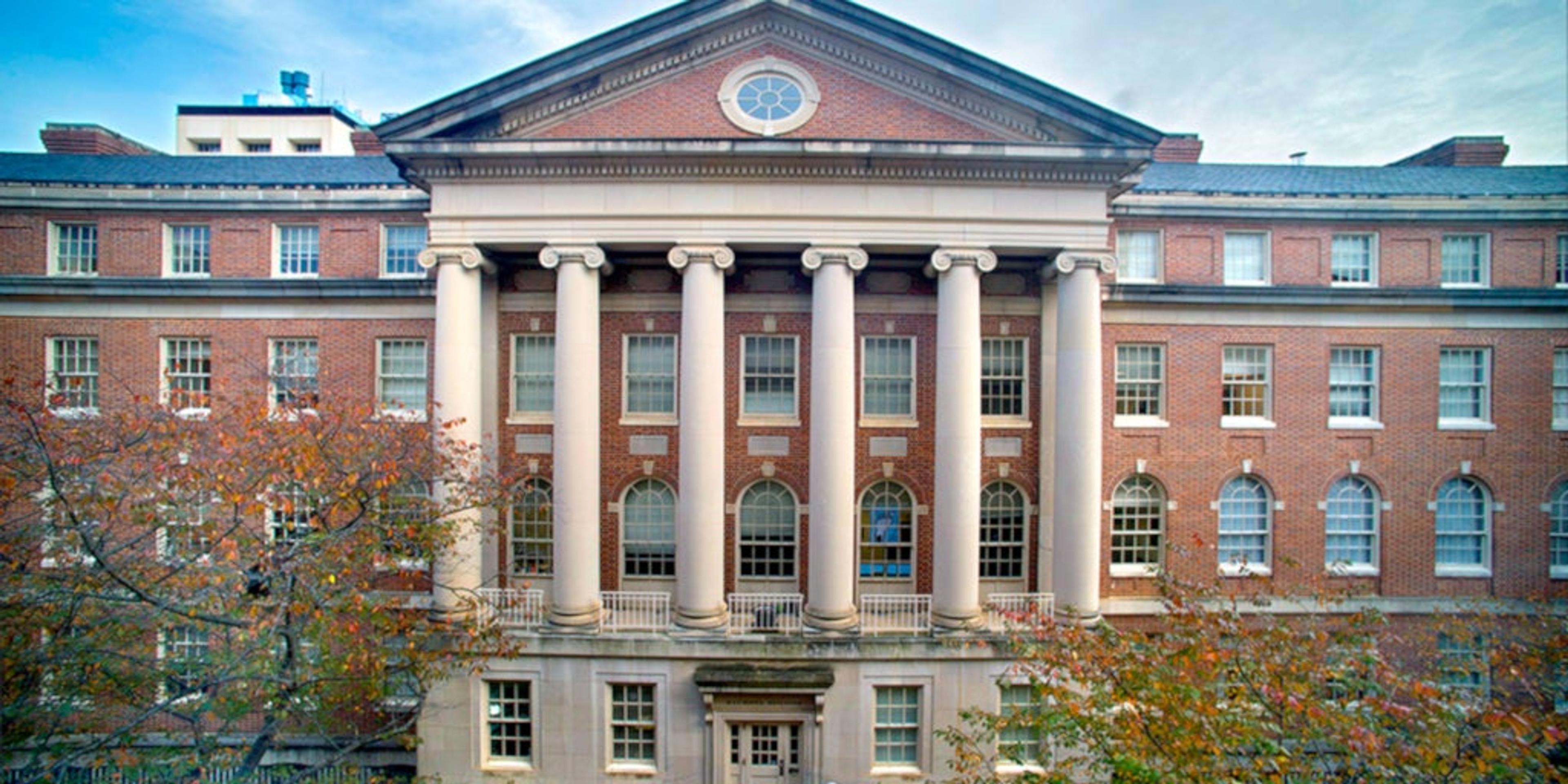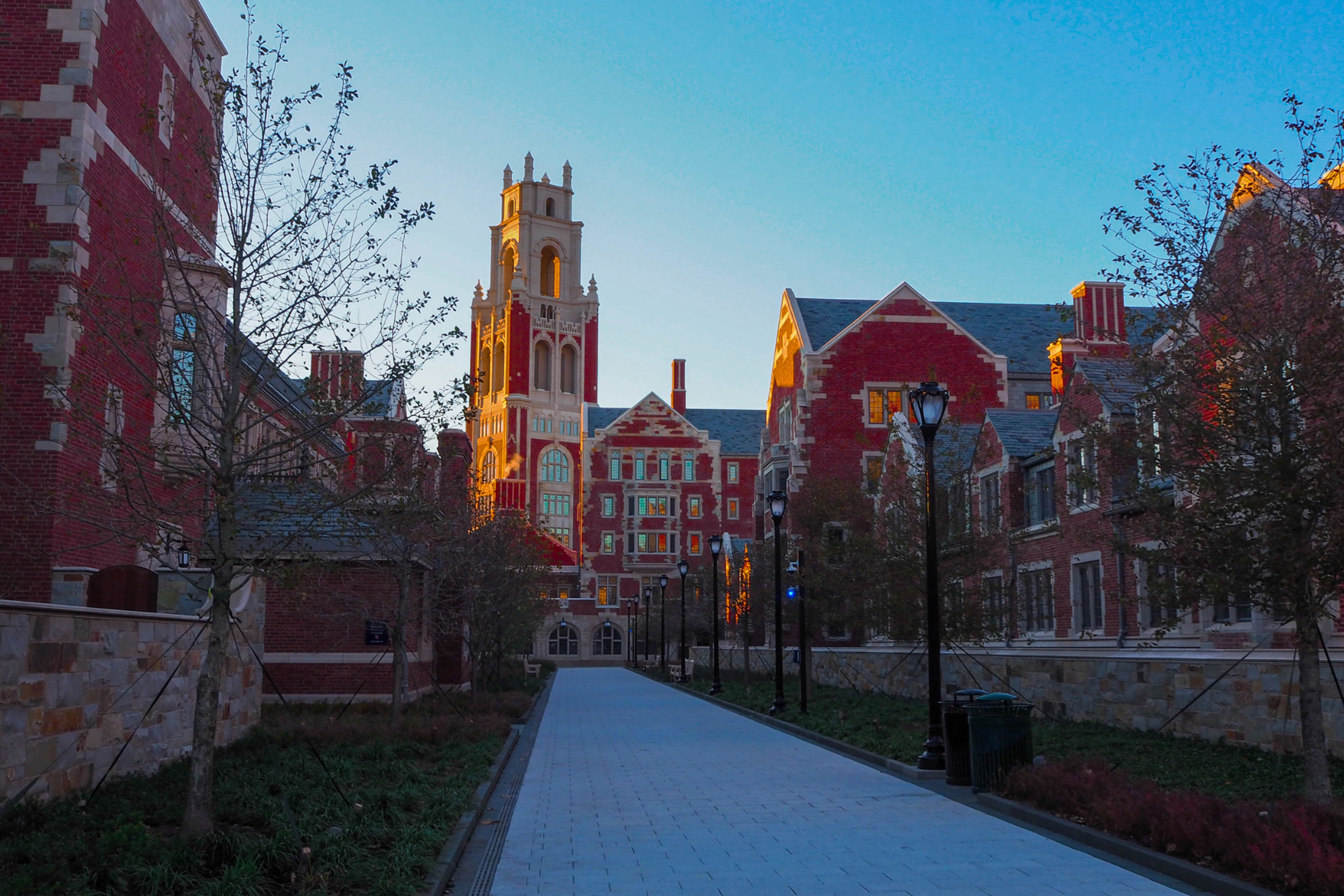Mayo Clinic School of Medicine: Acceptance Rate Overview (2024)
Discover the latest acceptance rate trends for Mayo Clinic School of Medicine in 2024.
Posted March 6, 2025

Table of Contents
The Mayo Clinic School of Medicine is a prestigious institution that attracts accomplished individuals seeking a world-class medical education. As prospective students prepare to embark on their academic journey, it is vital to understand the acceptance rate and the factors that influence it. In this article, we will provide an overview of the Mayo Clinic School of Medicine's acceptance rate for the academic year 2023-2024, discuss the various factors that can impact acceptance rates, compare them with other medical schools, and explore strategies to improve your chances of acceptance.
Mayo Clinic School of Medicine Acceptance Rate 2024
For the academic year 2023-2024, the Mayo Clinic School of Medicine had an acceptance rate of 4.5%. This extremely competitive rate underscores the school's commitment to admitting only the most qualified and dedicated applicants. For both M.D. and M.D.-P.h.D. programs, Mayo Clinic Alix School of Medicine received applications of over 5,000, and only 215 students were offered acceptance to either of the school's programs. With a limited number of available spots, prospective students should approach their application process with utmost vigilance and thorough preparation.
Admission and Acceptance Statistics (M.D. Program)
- Applications: 5,037
- Applicants interviewed: 717
- Applicants accepted: 182
Admission and Acceptance Statistics (M.D.-P.h.D Program)
- Applications: 462
- Applicants interviewed: 73
- Applicants accepted: 28
The Mayo Clinic School of Medicine is renowned for its rigorous academic program and commitment to excellence in medical education. As one of the top medical schools in the country, it attracts a large number of aspiring physicians from all over the world.
The school receives a significant number of applications each year, far surpassing the number of available seats. This means that even applicants with excellent academic qualifications and a solid track record may face stiff competition. However, it is crucial not to be discouraged but rather to use this information to become better informed about the admissions process.
When applying to Mayo Clinic School of Medicine, it is important to showcase not only academic excellence but also a genuine passion for medicine and a commitment to patient care. The admissions committee looks for well-rounded individuals who have demonstrated leadership skills, compassion, and a strong work ethic.
The school values extracurricular activities and community involvement. Applicants who have engaged in volunteer work, research projects, or leadership roles in student organizations stand out in the highly competitive applicant pool.
Additionally, Mayo Clinic School of Medicine places a strong emphasis on diversity and inclusivity. The school seeks to create a learning environment that reflects the diverse patient populations they serve. Applicants from underrepresented backgrounds are encouraged to highlight their unique perspectives and experiences in their application.
Once the initial application is submitted, selected candidates are invited for interviews. The interview process at Mayo Clinic School of Medicine is comprehensive and aims to assess not only the applicant's knowledge and skills but also their interpersonal and communication abilities.
Accepted students at Mayo Clinic School of Medicine have the opportunity to learn from world-renowned faculty members who are experts in their respective fields. The school provides a supportive and collaborative learning environment where students can thrive and develop into competent and compassionate physicians.
Read: Acceptance Rates and Class Profiles of the Top 15 Medical Schools
4 Main Factors Influencing the Acceptance Issue
Several factors play a significant role in determining acceptance into the Mayo Clinic School of Medicine. While each applicant is evaluated holistically, the admissions committee pays particular attention to academic achievements, extracurricular involvement, personal qualities, and the ability to contribute to healthcare.
Academic Achievements: One of the crucial aspects considered during the application review is an applicant's academic performance. Outstanding grades, especially in science-related courses, are essential. Additionally, successful completion of prerequisites, such as biology, chemistry, physics, and mathematics, demonstrate a solid foundation in the sciences, which is highly valued by the admissions committee.
However, academic achievements go beyond just grades. The committee also looks for evidence of intellectual curiosity and a thirst for knowledge. This can be demonstrated through participation in advanced courses, independent research projects, or academic competitions. The ability to think critically and solve complex problems is highly regarded in the field of medicine, and applicants who have shown these skills are more likely to be considered favorably.
Extracurricular Involvement: Mayo Clinic School of Medicine seeks individuals who have dedicated their time and energy to extracurricular activities that reflect their passion for improving healthcare. Whether it be volunteering at a local clinic, participating in research projects, or engaging in leadership roles within community organizations, showcasing such experiences can significantly enhance your application.
Extracurricular involvement not only demonstrates a commitment to service but also highlights an applicant's ability to manage time effectively and balance multiple responsibilities. Medical school can be demanding, and the admissions committee wants to ensure that applicants have the necessary skills to thrive in such an environment. By engaging in extracurricular activities, applicants can showcase their ability to juggle academic and non-academic commitments, which is a valuable trait for future physicians.
Personal Qualities: Admissions committees also assess an applicant's personal qualities, such as resilience, empathy, communication skills, and the ability to work effectively in teams. These qualities are crucial for future physicians who will be caring for patients and working collaboratively with healthcare teams.
Resilience is particularly important in the medical field, as physicians often face challenging situations that require them to adapt and persevere. Admissions committees look for evidence of resilience in an applicant's personal statement, letters of recommendation, and interviews. Sharing personal stories of overcoming obstacles or demonstrating perseverance in the face of adversity can make a strong impression on the committee.
Empathy and effective communication skills are also highly valued. Medical professionals must be able to connect with patients on a deeper level, understanding their emotions and concerns. The ability to listen actively and communicate clearly is essential in building trust and establishing effective patient-doctor relationships. Applicants who can demonstrate these qualities through their experiences and interactions are more likely to be considered favorably.
Contributing to Healthcare: The Mayo Clinic School of Medicine values applicants who have demonstrated a commitment to improving healthcare. This can be demonstrated through involvement in healthcare policy initiatives, public health campaigns, or research projects focused on addressing medical challenges.
Applicants who have actively contributed to healthcare initiatives show a genuine interest in making a positive impact on the field. Whether it be advocating for policy changes, raising awareness about public health issues, or conducting research to advance medical knowledge, these experiences demonstrate a dedication to improving the lives of others. Admissions committees appreciate applicants who go above and beyond their academic requirements to actively engage in initiatives that address healthcare challenges.
Read: Medical School Acceptance Rates: What You Need to Know and How to Improve Your Chances
Comparison with Other Medical Schools
When considering acceptance rates, it is essential to remember that each medical school has its unique criteria and admissions processes. Comparing acceptance rates can offer valuable insights, but they should not be the sole determinant in your decision-making process.
For example, schools such as Stanford University School of Medicine, Harvard Medical School, and NYU Grossman School of Medicine have acceptance rates in the range of 2-4%. These schools attract outstanding applicants from around the world, making the competition fierce.
While the Mayo Clinic School of Medicine's acceptance rate of 4.5% may appear higher compared to some other institutions, it is crucial to recognize the unparalleled opportunities and resources available at Mayo Clinic. The school's reputation for producing exceptional physicians, integration of research and clinical practice, and emphasis on patient-centered care sets it apart from many other medical schools.
Understandably, the acceptance rate can be daunting. However, focusing on strengthening your application holistically, rather than fixating solely on acceptance rates, will ultimately serve you better in your pursuit of a medical education.
5 Tips to Improve Your Chances
While the Mayo Clinic School of Medicine's acceptance rate is highly competitive, there are steps you can take to increase your chances of securing a spot in the incoming class.
- Academic Excellence: Maintain excellent grades throughout your undergraduate education, especially in science-related courses. Seek opportunities to challenge yourself academically and engage in research or other scholarly projects to demonstrate your commitment to learning.
- Build Your Experiences: Engage in extracurricular activities that align with your passion for healthcare. This could include volunteering in hospital settings, participating in research experiences, or actively contributing to healthcare organizations. These experiences not only demonstrate your commitment to the field but also allow you to develop skills and insights that will serve you well in your medical career.
- Showcase Personal Growth: Reflect on your personal experiences and the lessons you have learned from them. Highlight instances where you have overcome challenges or displayed resilience. Admissions committees value individuals who can demonstrate personal growth and maturity.
- Seek Mentorship and Guidance: Connect with current medical students, physicians, or mentors who can offer guidance and advice throughout your journey. Their insights and experiences can help you navigate the complex application process and make informed decisions.
- Prepare for Interviews: If invited to interview, approach the process with thorough preparation and practice. Reflect on your motivations for pursuing a medical career and be ready to articulate your passion for medicine and the Mayo Clinic School of Medicine specifically.
Read these next:












